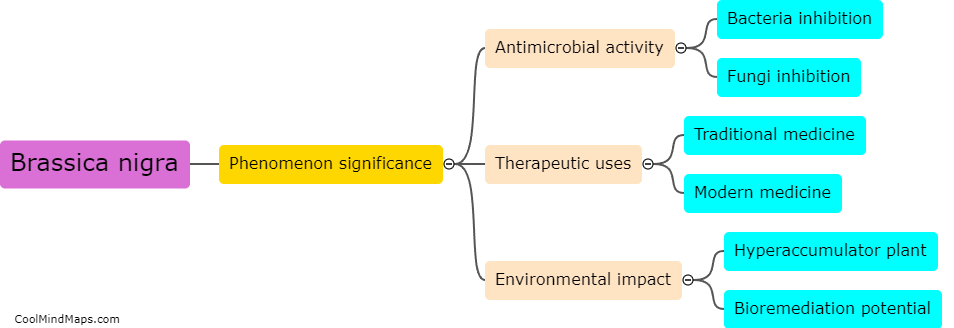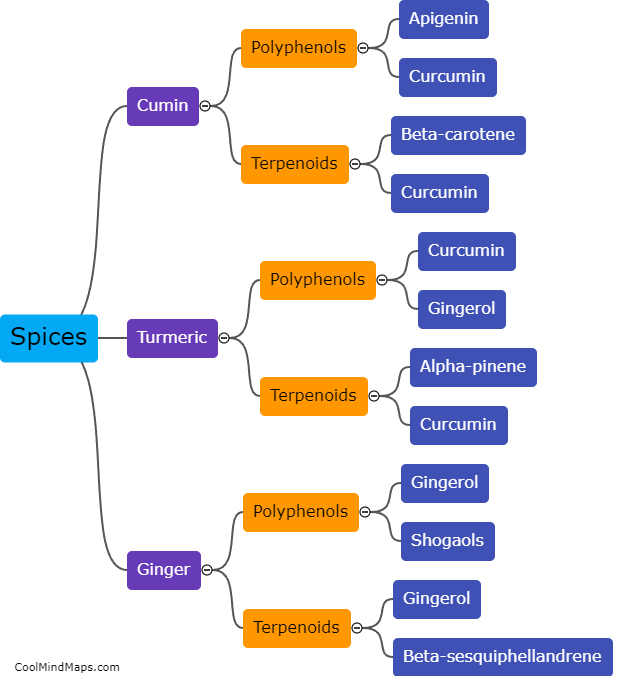What is the significance of this phenomenon in Brassica nigra?
Brassica nigra, commonly known as black mustard, is a plant species with significant agricultural and medicinal importance. The phenomenon of allelopathy has been observed in Brassica nigra, where it releases chemicals that can inhibit the growth and development of neighboring plants. This can be harnessed in various ways, including weed control and crop protection. Additionally, Brassica nigra is a rich source of phytochemicals like phenolics, flavonoids, and glucosinolates, which have been studied for their potential health benefits in cancer prevention and treatment. Therefore, the phenomenon of allelopathy in Brassica nigra holds great potential for both agricultural and medicinal applications.

This mind map was published on 17 May 2023 and has been viewed 106 times.











